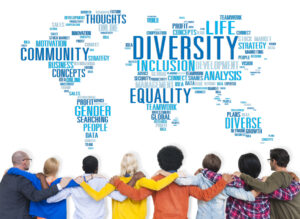Select Language |
Published September 18, 2020
Read Time
Published September 18, 2020
Read Time
Global Diversity Month 2020 got me thinking that when I founded my business about 20 years ago I called it Global Business Culture so I suppose we have been celebrating Global Diversity for a very long time now – nonetheless I still think it important to mark October as the officially designated ‘Global Diversity Month 2020’ because this is one way of bringing the issue front of mind for a brief period.
At Global Business Culture, we work in a fractal of the diversity debate which is focused on the impact that national cultural background can have on cross-border business effectiveness. We don’t really look at issues of ethnicity, gender, disability or ideology – not because we don’t think these issues are important (we know they are) but because our chosen field of expertise is already so vast. What we focus on is how it is and why it is that people think differently and behave differently in a business environment because of their national cultural background – and that is complicated enough for us!
We know that when people work in complex cross-border environments, a well-developed level of cultural fluency can be a real asset to both the individual and the organisation they work for. Cultural fluency breeds cross-border effectiveness.
But what can individuals and organisations do during Global Diversity Month 2020 to start to encourage higher levels of cultural fluency? We believe that there are three key messages that need to be understood and these are:
People need to actively acknowledge that global cultural differences are real and that they can have a significant commercial impact on operational efficiencies and successful cross-border relationship-building – for both good and bad. For many of us this awareness is a real ‘light bulb’ moment and is almost a conscious intellectual act. Some people come to this realisation spontaneously, but many people need help in getting to this point through well-structured, commercially focused cross-cultural training.
As soon as people have consciously accepted that global cultural differences can have a significant impact on cross-border business they realise that awareness of that fact is not enough. They realise that they need knowledge. They may have become aware that business in China is done differently but they then need to know in what ways it differs from their own cultural norms and how those differences might impact on day-to-day business activities.
The final piece of the jigsaw is when people can take their new-found awareness, couple it with the knowledge they have gained and then apply it to practical business challenges. ‘I am aware that cultural differences are important when working in China, I know that Chinese meetings are run differently and therefore I can apply all of this and adapt my own approach to meetings in order to ensure the best possible business outcome.’ As in all things, application is the most difficult but important point. It is difficult because it requires behavioural and mindset change but it is important because that is what gets results over time.
So, my challenge to both individuals and organisations during October’s Global Diversity Month would be, what are you doing to become aware, gain knowledge and then successfully apply that awareness and knowledge in a global cultural context.
If you would like to discuss strategies for developing global cultural fluency within your organisation, please get in touch.

© Copyright 2024 Global Business Culture. All rights reserved | Legal Notices